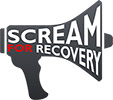Your spouse, best friend or sibling has just completed a successful drug or alcohol addiction recovery program for addiction. What can you do to help them maintain a sober life?
It is vitally important to understand that being “clean and sober” does not equal being cured of one’s drug dependence. Do not expect your loved one to suddenly be the person they were before the disease of addiction. They now have new coping mechanisms and a new way of looking at their own life and the world around them.
The Substance Abuse and Mental Health Services Administration (SAMHSA) has established a working definition of recovery that defines it as a process of change through which individuals improve their health and wellness, live self-directed lives and strive to reach their full potential.
It is our responsibility to help our loved one achieve these goals by learning as much as possible about their condition and treatment plan and encouraging them to follow it. Offer transportation to therapy sessions and health services and tactfully remind them to take any prescribed medications.
An Addiction Recovery Model for the Family
It is important to understand that just as the addict is responsible for their own recovery, family members are also responsible for their own recovery. The whole family is in the addiction recovery process together, including any children. Addiction in the family strains relationships and people become anxious, mistrustful, tired and an overwhelming sense of hopelessness can set in. Because drug dependence hurts the whole family, it is absolutely essential that solutions are designed to restore the whole family.
The National Council on Alcoholism and Drug Dependence, Inc. (NCADD) reminds us that recovery from addiction is a family disease. Those who have been affected by addiction may
take years to recover as they rebuild and stabilize their lives independent of the alcohol and drug addicted family member. Without question, it can seem overwhelming, but it helps to keep in mind that commitment to the addiction recovery process is also a commitment to a sober life and the overall well-being of the entire family. They add that the hope, help, and healing of family recovery has become the most powerful way to break the inter-generational cycle of alcoholism and addiction in the family.
When someone in addiction recovery returns home from a rehabilitation center, it is important to return to a regular routine. Don’t let life revolve around your family member’s addiction; spend time together on activities unconnected to their disease. At the same time, gently allow them to ease back into routine activities rather than requiring participation.
Simply listening is one of the best ways to show your support. According to the National Alliance on Mental Illness (NAMI), when your family member says hurtful things, it helps to listen for the emotion behind the words rather than focusing on the words themselves. Try to recognize and acknowledge the pain, anxiety or confusion rather than getting into unnecessary arguments.
Active Family Engagement in the Addiction Recovery Process
Outside support and encouragement is a critical rung of the addiction recovery process for everyone in the family, not just the recovering member. Since stress is easier to handle when you regularly talk to people who understand your experience, peer-led support groups, such as Al-Anon and Nar-Anon, are an excellent source of support.
Once a friend or family member is receiving treatment or going to meetings, their loved ones need to remain involved and maintaining their own commitment to getting help. They must continue to nurture the recovering addict’s participation in continuing care, meetings and support groups to show that they are concerned about their successful long-term recovery.
Support groups offer assistance for family and friends that have dealt with the devastating effects of someone else’s addiction. There can also be members of Alcoholics Anonymous and Narcotics Anonymous who share their addiction recovery success stories as well, offering hope and an opportunity to grasp the pain addicts go through when hurting themselves and their families.
Support is Not Control
Educate yourself and learn how to cope with the effects of addiction by listening to the experiences of other families that have gone through the struggles of watching those closest to them face addiction and enter recovery. By keeping an open mind and focusing on what you can control, you can improve your own situation and learn how to best support the rest of your family. If family members try to control their loved one, even after treatment, they can end up enabling them and causing further unhappiness for themselves.
Always remind your friend or family member that you’re there to help and you’re not giving up on them. At The Discovery House, families of residents participate in weekly group sessions that prepare them for giving that all-important reinforcement and support to their loved one.
It takes time and work, but with proper support and other addiction recovery resources, you and your loved one can get your life back.



